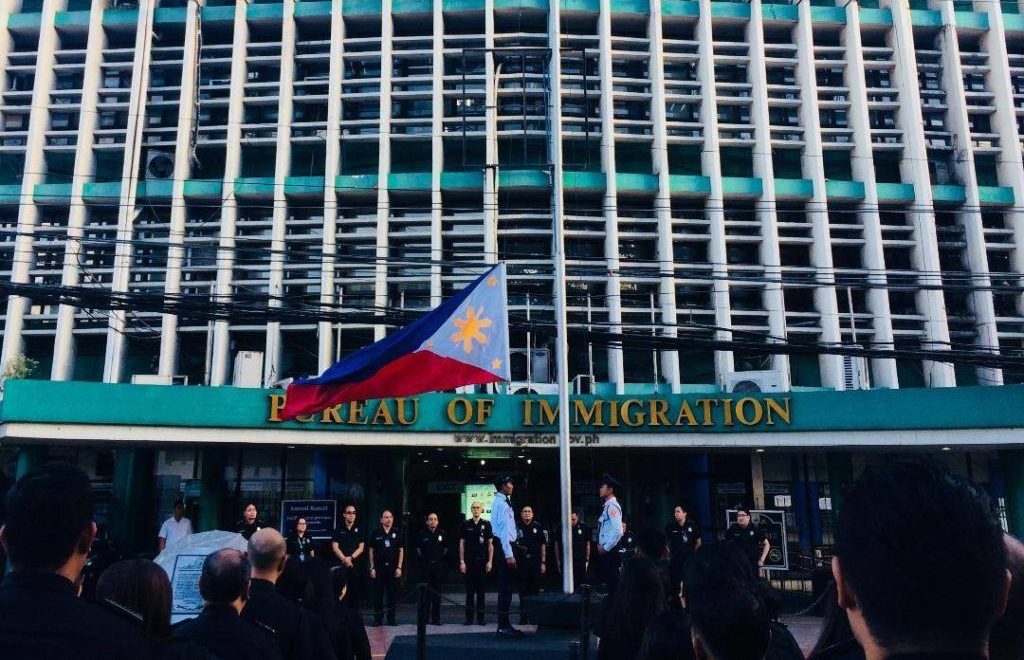
The National Bureau of Investigation (NBI) on Tuesday filed graft charges against 19 officials and personnel of the Bureau of Immigration (BI) for their alleged involvement in the “pastillas” scheme that facilitated the entry Chinese nationals into the country in exchange for bribe money.
The NBI charged the BI employee before the Ombudsman for accepting bribe money in exchange of allowing the entry of foreign nationals “without passing through the normal immigration process and screening”.
Charged were Port Operations Division acting chief Grifton Medina, Ninoy Aquino International Airport Terminal 1 traffic control and enforcement unit deputy head Dean Albao, NAIA immigration supervisor Abdulhafez Hadjibasher, senior immigration officer Er German Robin, BI officers Gabriel Estacio, Ralph Garcia, Phol Villanueva, Abdul Calaca, Danilo Deudor, Mark Macababad, Aurelio Lucero III, George Bituin, Salahudin Hadjinoor, Chevy Naniong, Jeffrey Ignacio, Hamza Pacasum, Manuel Sarmiento III and Cherry Pie Ricolcol and security guard Fidel Mendoza.
Mendoza, who was designated by Medina as his chief of staff, was investigated by the Senate for allegedly having millions in net worth despite working as a security guard.
Also charged as a private respondent for corruption of public officials was Empire International Travel and Tours owner Liya Wu was included in the charge sheet, who the NBI alleged paid the bribe money for the entry of the Chinese nationals.
In the complaint, the NBI relied on the testimony of BI officer and whistle blower Allison Chiong who provided evidence that the trafficking happened “through the frontline manned by corrupt immigration officials.”
The NBI said it found Chiong’s allegations that bribe money was exchanged from “Chinese suppliers” to the BI officers in exchange for the entry of foreigners into the country from 2017 to 2020 as “meritorious”.
“The pastillas scheme allowed the unchecked entry of foreigners, mostly Chinese POGO workers, into the country even though they did not merit admission – all for monetary considerations,” the NBI said.
The NBI was able to get copies of the respondents’ conversations in three Viber groups where they discussed their share in the bribe money wrapped in brown envelopes.
The bureau also looked into the immigration records of foreigners identified in the Viber groups and discovered that they entered the country as tourists. One of the video evidence used against the BI personnel was a video secretly recorded by Chiong using a spy pen. It showed Chinese passengers being ushered one by one from the Immigration queue in NAIA Terminal 1 bypassing other passengers waiting in line.
Another evidence submitted by Chiong was a photo of three male uniformed BI officers gathered around a table with large amounts of money in brown envelopes.
Senator Risa Hontiveros, who first revealed the modus at a Senate hearing in February, was pleased with the filing of charges against the BI employees.
Mabuti at nakasuhan na ang 19 na opisyales at empleyado na kasabwat sa ‘pastillas scheme’ na isiniwalat ng opisina ko noong umpisa ng taon. https://t.co/KV1HA57JIp
— risa hontiveros (@risahontiveros) September 2, 2020
Back in February, Hontiveros revealed that Chinese nationals, mostly those who wanting to enter the country to work in Philippine offshore gaming operations (Pogo), pay at least P10,000 each to the BI personnel for their smooth entry into the country. The bribe money was reportedly rolled in a white bond paper similar to the packaging of the local delicacy “pastillas”, thus the monicker to the scheme.
She estimated that P10 billion worth of bribe money from these Chinese nationals was paid to and shared by the charged Immigration officials.
President Rodrigo Duterte, in the same month, ordered the relief of all BI officials and employees allegedly connected to the modus. Rommel F. Lopez